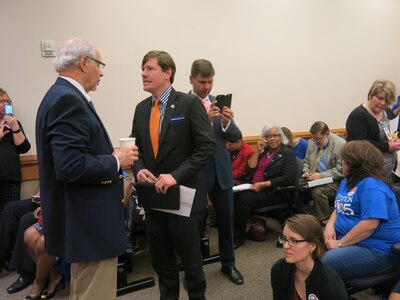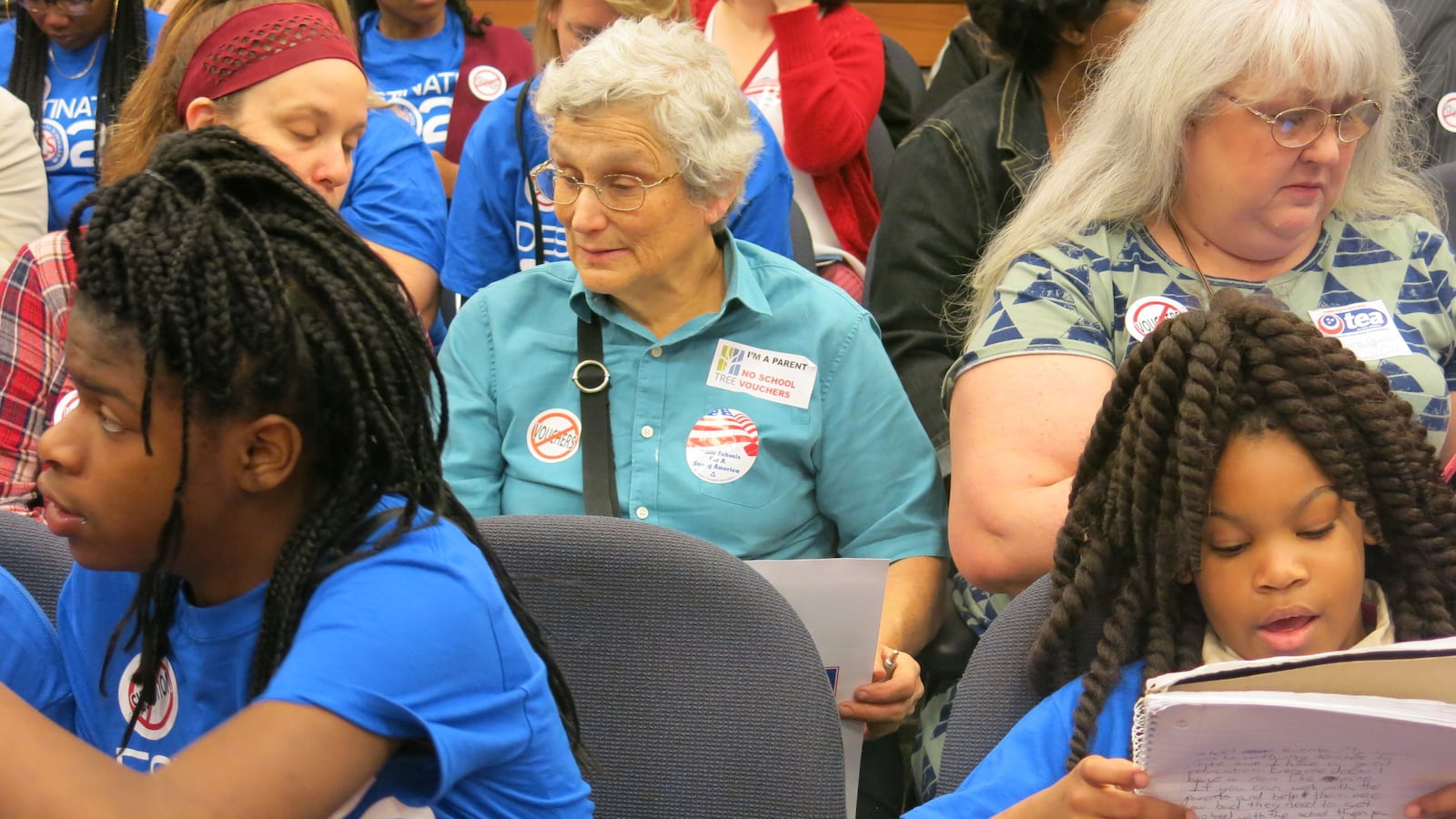A bill that would use Memphis as a testing ground for tuition vouchers is one step closer to becoming law after clearing a key committee on Tuesday.
After a fierce, two-hour debate largely between Memphis-area lawmakers, the measure passed 8-5 in the House Education Administration and Planning Committee.
The proposal still has to clear the House Government Operations and Finance committees before heading to the House floor. Vouchers have never passed the full House before, although a different statewide voucher bill came close last year. In the Senate, which has approved a voucher program three times, the bill is awaiting consideration by the Senate finance panel.
This year, proponents hope that a more cautious rollout, which would pilot vouchers for students attending Shelby County Schools before going statewide, will help eke the measure through.
Tuesday’s impassioned debate likely foreshadowed showdowns in the coming weeks, pitting lawmakers who think more Memphis parents need private school options against those who are concerned vouchers would hurt public schools. The audience was packed with Memphis parents, students and teachers who had traveled to the Capitol for a second straight week to voice their opposition.
While the bill’s geographic focus might be a selling point for legislators elsewhere in the state, it has Shelby County lawmakers from both sides of the aisle irate. Most elected officials overseeing schools in Shelby County are on the record against a voucher bill, especially one aimed exclusively at their community.
“Now you want to come into my county and you want to institute some voucher program that you’re not sure is going to work,” said Rep. Ron Lollar, a Republican from Bartlett, a suburb of Memphis. “I would implore my fellow members that if you want vouchers, include your own county.”

But voucher supporters said Memphis has the greatest need for more education reform tools because it has the highest number of the state’s “priority schools” in the bottom 5 percent.
Rep. Mark White, a Republican and one of the few Memphis lawmakers who supports the bill, said too many students are leaving local schools without the skills to support themselves and escape poverty.
“I think Memphis is the greatest city in the state,” White said, “but we cannot let our children come out of our schools with proper credentials, and that’s where we are.”
Rep. John DeBerry, a Memphis Democrat, spoke at length about his belief that more Memphis children could be lifted out of poverty if given the chance to attend a private school.
“With all due respect to my colleague, I don’t deal in anecdotes, I deal in facts,” said Rep. Raumesh Akbari, another Memphis Democrat. “And I’ve yet to see facts that vouchers are doing anything to help children. … I’ve always kept an open mind, but this is where I draw the line.”
Chairman Harry Brooks, a Knoxville Republican and the bill’s lead sponsor, said that while recent research has called vouchers into question, Tennessee has shown that it can be successful with bold education reforms, including Tennessee Promise, which provides high school students with two free years of community college.
“The reality is we have a track record of developing programs unique to Tennessee that are successful,” he said.

But third-grade student Da’Zyria Love, whose mother, Stephanie, is a board member for Shelby County Schools, said that public education in Memphis was being unfairly portrayed.
“I learn figurative language, brainstorming, and personification,” said Da’Zyria, who is in the district’s gifted program. “I have lived in a neighborhood infested with gangs, drugs and all types of crap, but I live in a home with a mother who makes sure I have what I need.”

